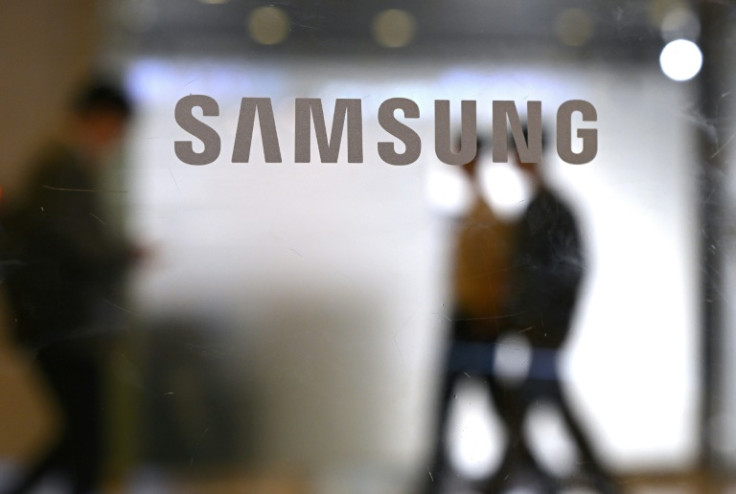Samsung Q3 Operating Profits Soar To $6.6 Bn, Miss Forecast

South Korea's Samsung Electronics said Thursday that its operating profits soared 277 percent on-year to $6.6 billion but missed expectations as it struggled to leverage demand for chips used in artificial intelligence servers.
The world's largest memory chip maker posted an operating profit of 9.18 trillion won ($6.6 billion) "largely due to one-off costs".
It also warned in a statement that "the strength of the Korean won against the US dollar resulted in a negative impact on company-wide operating profit".
Although operating profit nearly tripled compared with a year ago, it fell short of market expectations and was down 12 percent compared with the previous quarter.
Revenue rose 17.35 percent to 79.1 trillion won ($57.2 billion), its highest quarterly record, Samsung said.
The firm is the flagship subsidiary of South Korean giant Samsung Group, by far the biggest of the family-controlled conglomerates that dominate business in Asia's fourth-largest economy.
Semiconductors are the lifeblood of the global economy, used in everything from kitchen appliances and mobile phones to cars and weapons.
The company's semiconductor division reported 3.86 trillion won in operating profit, a 40 percent decrease from last quarter.
Samsung said its performance had decreased due to "a reduced reversal of inventory valuation loss compared to the previous quarter, one-off expenses such as the provision of incentives, and currency effects due to a weak dollar".
Samsung's third quarter results "were weak although the company has maintained a strong balance sheet," Gloria Tsuen, Moody's Ratings vice president and senior credit officer told AFP.
"The key for its earnings in the next 12 to 18 months will be progress and growth in high value-added products for AI, including HBM3E and high-density server memory chip products," she said.
Samsung has been lagging behind South Korean giant SK hynix when it comes to high-bandwidth memory (HBM) chips used in AI chipsets, which experts have blamed for the lacklustre results.
Earlier this month, Samsung management issued a rare apology, acknowledging the company was facing a "crisis".
"
"Our management will take the lead in overcoming the crisis... We will make the serious situation we are currently facing an opportunity for a resurgence."
The apology came about a week after the tech giant said it intended to reduce staff in some of its Asia operations, describing the move as "routine workforce adjustments".
Bloomberg reported the layoffs could affect about 10 percent of the workforce in those markets.
Samsung shares have dropped by 33 percent since their peak in July, and the company has lost over $120 billion in market value during that time.
The market capitalization gap between Samsung Electronics and SK hynix reached its narrowest level in 13 years last week.
Samsung Electronics shares rose 0.17 percent on Thursday, outperforming the benchmark KOSPI index, which fell by 1.45 percent.
For the next quarter, Samsung expects current demand for the memory business to continue and aims to "strengthen its business fundamentals" by normalising inventory levels.
"In the fourth quarter, while memory demand for mobile and PC may encounter softness, growth in AI will keep demand at robust levels," it added.
Experts said falling prices in the memory sector could affect Samsung.
However, Samsung is expected to increase shipments of its most advanced chips next quarter, according to Avril Wu, senior research vice president at TrendForce.
"The company's fourth-quarter profits will be sustainable," she said.
But if Samsung does not get the certification of its high-capacity HBM3E chips in time, "it will pressure Samsung's gross profit performance", she added.
© Copyright AFP 2025. All rights reserved.





















